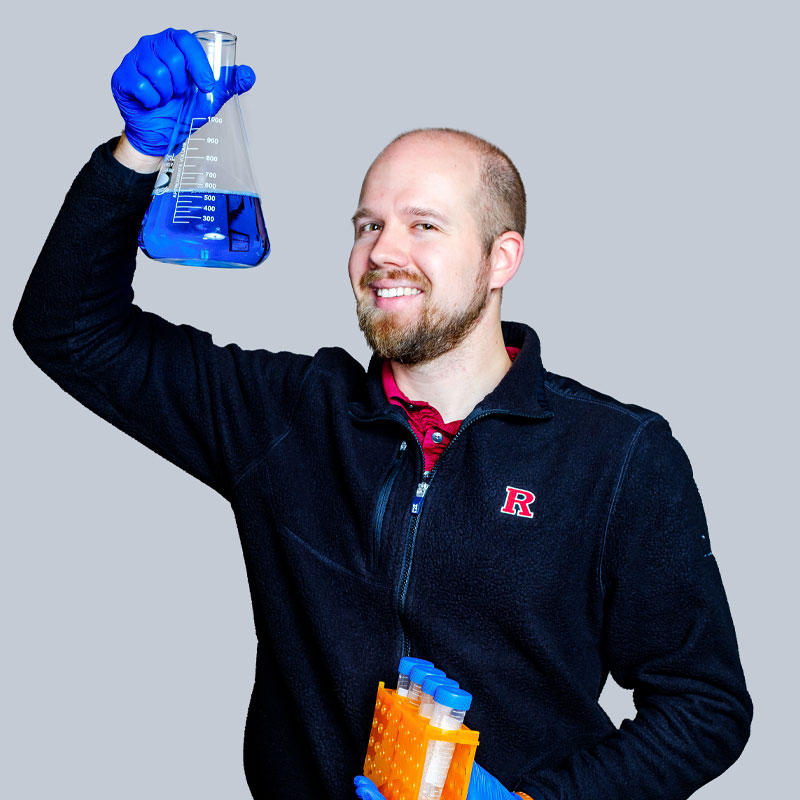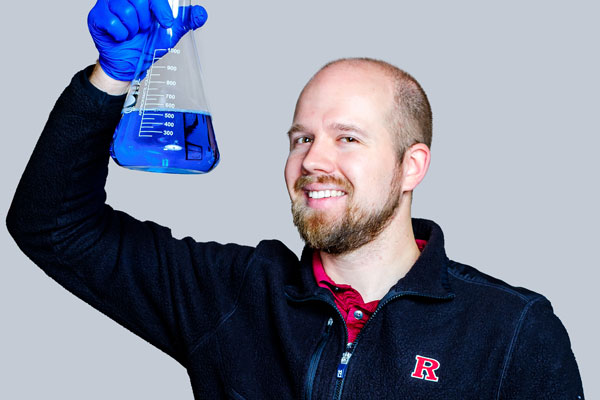

Matthew J. McBride
BS chemistry ’14
Assistant Professor, Rutgers University (Piscataway, New Jersey)
Age 31

Technology’s power to understand the workings of a living cell has captivated biochemist Matthew J. McBride, BS chemistry ’14, ever since he got a taste for bench science in high school and then deep dived into research as an undergraduate at Drexel — an experience that has proven a crucial stepping stone to his cutting-edge work as an academic.
Completing his postdoc at Princeton University last year after earning a PhD at Harvard University in 2019, McBride joined Rutgers University as an assistant professor of chemical biology, with a joint appointment at the Rutgers Cancer Institute of New Jersey. Now, McBride is busy establishing a cancer metabolism research lab to break ground on the little-studied role of nutrition in cancer treatments.
“Could we use nutrition to make cancer therapy more effective?” he says of the fundamental question he plans to tackle. “It’s really a way of thinking. How do we best support and improve therapies that might already be available?”
Specifically, McBride is using the latest analytical chemistry techniques, such as metabolomics and stable isotope tracing, to explore the role of amino acids in the growth of tumors in triple-negative breast cancer and pediatric joint cancer synovial sarcoma. He also wants to gauge how those nutrients might influence the effectiveness of radiation therapy.
The nutrition research builds on his postdoc work, where McBride studied the nonessential amino acids serine and glycine, raw materials for tumors. His interest in nutrition and cancer was piqued when a close friend diagnosed with an aggressive glioblastoma adopted a high fat/low carb keto diet, which limited case studies had suggested might help. While his friend beat the odds, McBride was struck by the lack of controlled experiments to test the benefit of dietary interventions against specific cancers.
“There’s a lot of hype around diet and nutrition and treating disease,” he says, “but less rigorous research and science, what is valid and what is overhyped.”
McBride caught the research bug at a young age. Homeschooled, he competed in science fairs as a kindergartner. As a high schooler, he worked on a breast cancer project at Villanova University and was hooked.
But it was Drexel, he says, that was fundamental in launching his research career. His father, J. Kevin McBride ’82, studied business administration at the University, but it was an open house touting undergraduate research that sold McBride. In his first quarter, he joined the lab of the late Associate Professor of Chemistry Jean-Claude Bradley, whom he considered a mentor, and worked on new ways of purifying potential drug compounds. Through Drexel’s STAR Scholars program, which pairs young students with faculty research projects, he continued researching over the summer and presented at the 2012 American Chemical Society meeting in Philadelphia.
As a rising senior, the Amgen Scholars program allowed him to study protein levels in different cancers at the University of California, Los Angeles — an experience, he says, that opened the door to Harvard’s doctoral program. There, he first studied epigenetic dysregulation in synovial sarcoma and explored new strategies to target this disruption to DNA. His work resulted in first author publications in Cancer Cell in 2018 and Nature Structural & Molecular Biology in 2020. These led to the Princeton postdoc and ultimately the chance to start his own lab, where he’s not only developing better cancer therapies but also mentoring students.
“None of that happens,” McBride says, “if Drexel doesn’t emphasize undergraduate research from day one.”
How I Pay it Forward
I have received incredible mentorship, both formally and informally, throughout my journey of scientific training. Now, I have the privilege of providing that same mentorship to scientists at all stages of education. I strive to reduce barriers, provide opportunities and create an environment where each person experiences a genuine joy and thrill of discovery and is equipped to be an exceptional and rigorous scientist.




